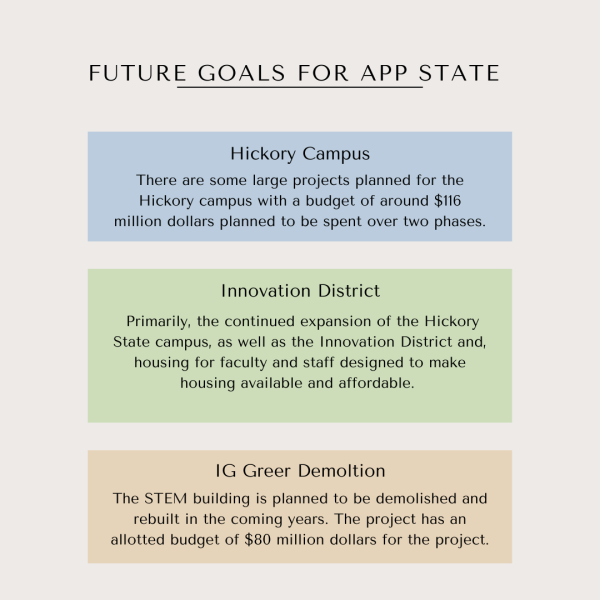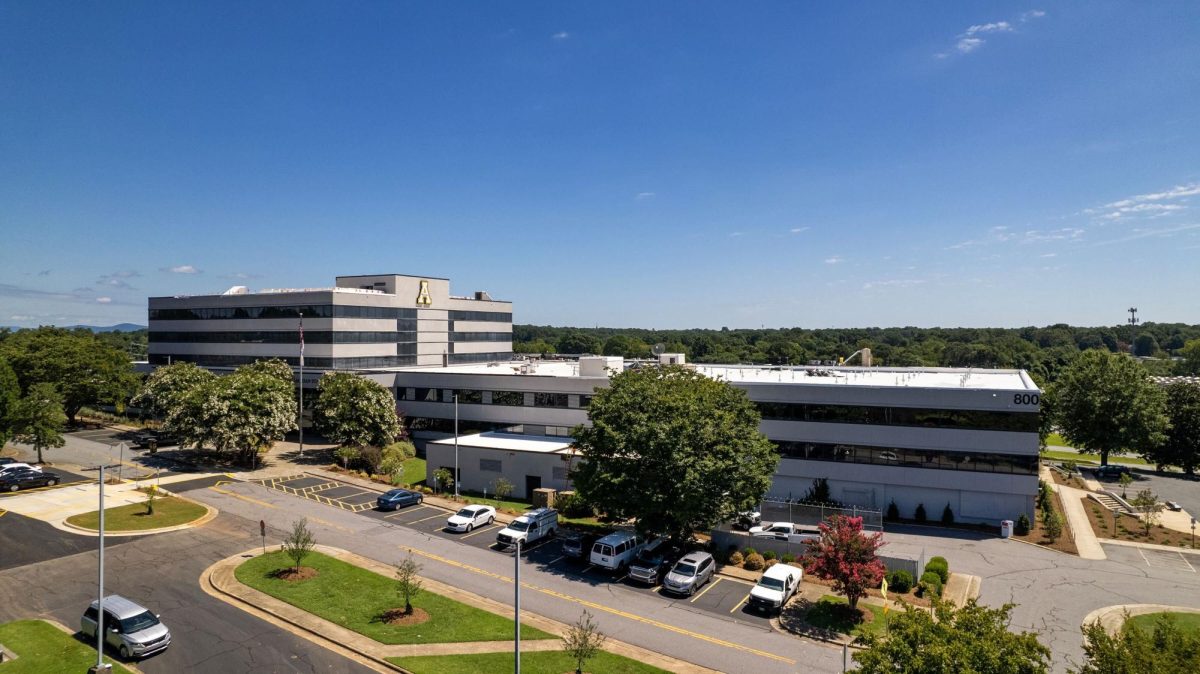App State submitted their six year plan to the UNC system as a request for funding, with the plan being since approved.
The total named and appropriated capital comes to approximately $386 million dollars to be spent on capital projects, said Chancellor Sheri Everts.
“A community is a group of people who agree to grow together,” Everts said during her address to the board of trustees on Sept. 29. She also said this at the State of the University Address a week earlier.
The first area of immediate growth discussed by Everts is that of the Hickory Campus which welcomed students on Aug. 21. Everts reiterated App State’s continued dedication to providing an affordable education to the citizens of North Carolina.
“All of us here understand the power of higher education to change lives,” Everts said, recounting how the many board members benefited from being college graduates.
However, higher education typically comes with a higher amount of debt. App State hopes to eliminate this debt as they aim to increase affordability by 2025.
To achieve this goal President of The University of North Carolina System Peter Hans announced that in-state tuition will be kept flat for this year as well as the foreseeable future.
This tuition announcement comes on the back of an across the board salary increase totalling 7% over the course of two years.
Everts extended thanks to the UNC legislative body on behalf of the university for providing such generous funding for the university.
Everts provided an update to the board of trustees along with the faculty and staff on the $74 million which was allotted for the 42 capital projects App State is currently invested in. One of the largest of these projects is that of the continued expansion of the Hickory Campus.

An additional $41 million was budgeted to be spent over the next four years to provide the Hickory Campus with a writing center, faculties for clubs and organizations along with various other fixtures of campus infrastructure. With this new campus comes opportunity for students, which was reflected in an overall record breaking enrollment total of 7,200 students.
Everts, along with several members of the board, looked to debunk the myth that the App State student population had exploded in recent years.
“The reality is that in the last 10 years, the population of students living in the Boone community has increased by only about 200 per year on average and has remained at or near 18,000 for the last three years,” Everts said.
This was also mentioned in a press release from the Appalachian Today which was accompanied with a graph that displayed the student population for the current year at 21,253 students.
These numbers accompany App State’s mission to help the tight, competitive housing market in Boone and the surrounding communities. A recent housing study cited in the Everts’ presentation said around 1,700 housing units were needed to provide affordable housing for the student population of App State.
Everts specifically mentioned transfer students in reference to requested qualifications for a public-private partnership to provide housing and beds for students. Also in this request from Everts is the approval for more student parking and support facilities for the Boone campus.
Everts also announced a new performance-based funding model, focused around App State’s achievement towards four goals: affordability, four-year graduation rate, university productivity and the four-year graduation rate of Hispanic students.
Everts said this is paramount to affordability, breaking ground of the Innovation District, and the 156 housing units for faculty and staff. The first phase of this plan hopes to accommodate faculty and staff with 156 housing units along with a zero carbon district energy system.
App State broke ground in late summer on a conservatory which is a key facet in the upcoming innovation district. App State hopes to have this conservatory compete by fall 2025.
This zero-carbon district reinforces the campus mission of sustainability and productivity, as reflected in App State being voted the number one most innovative school in the south.
This project will hope to smooth the transition of the campus away from steam and other carbon producing forms of energy, according to a statement from the Future of App website.
Everts said she targeted a fall 2025 opening for the zero-carbon district. This a key development in terms of continuing App State’s continued mission of sustainability for the present and the future.



